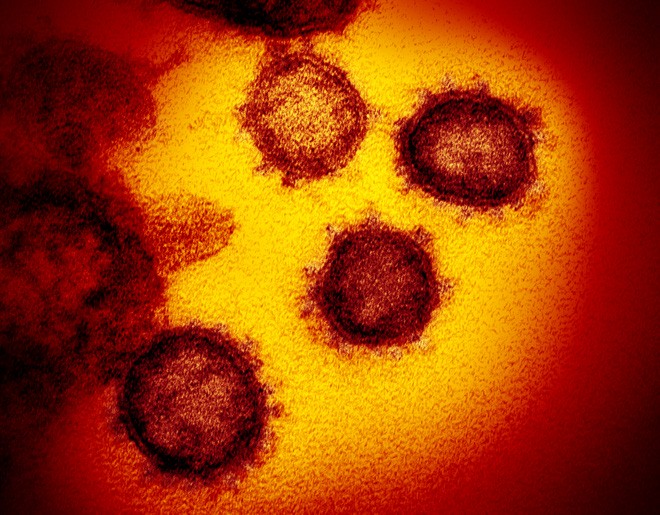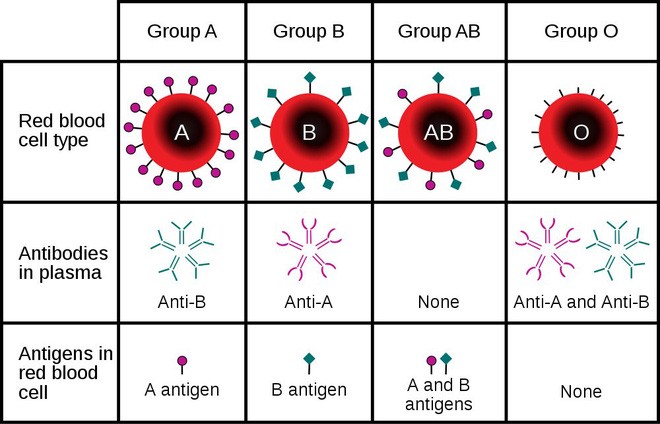How are blood types, antibodies and immunity to Covid-19 related?
Since the outbreak in Wuhan, China in December 2019, a new strain of corona virus called SARS-CoV-2 has been sweeping the world. The global chaos, and the scale of the Covid-19 epidemic it caused, led the World Health Organization (WHO) to declare it a pandemic in early February 2020.
Research to understand SARS-CoV-2 has always been a concern for scientists. By unraveling the mysteries of this virus is the first step in finding a solution to prevent the disease and a vaccine against it.
And as each day passes, scientists learn something new about the SARS-CoV-2 virus, and the Covid-19 disease it is causing.

One of the aspects that science is studying about SARS-CoV-2 is its relationship to other corona virus strains. For example, SARS-CoV-2 has been identified as a strain in the same corona virus family as the virus that causes severe Acute Respiratory Syndrome (SARS) and Middle East Respiratory Syndrome (MERS).
The SARS virus was first identified in 2002. It also caused a serious pandemic, causing 10% of infected patients to die. MERS, on the other hand, is native to the Middle East. And despite its lower infection, the MERS patient's mortality rate is many times higher than that of SARS, up to about 37%.
Researchers from SARS-CoV-2 have found that the structure of this virus is very similar to SARS-CoV. But it also has some noticeable differences. For example, one of Covid-19's most striking differences is its rapid spread across the globe.
Narrowing the gap to understand these differences and similarities is what stands between scientists and a solution to the disease that is spreading rapidly. And one important research aspect is that the way the human body fights and overcomes the disease caused by the SARS-CoV-2 virus, related antibodies in the blood types of infected patients can affect. Their immune response.
Similarities and differences
SARS-Cov-2 is spherical in shape with a number of proteins called surface spines. Similar to SARS-CoV virus These spikes attach to the same receptor found in human cells called angiotensin 2 -ACE2 conversion enzyme.
This information is important because it suggests that the SARS-CoV-2 virus uses the same mechanism as SARS to ensure its genes get into host cells, copy and infect cells. other. Scientists can use this knowledge to develop drugs that inhibit the prickly protein, and thereby slow the virus's ability to multiply.
Another similarity of SARS-CoV-2 is a structure on the surface of the prickly protein called NSP15. Scientists from several universities in the United States studied the structure of this protein and found it resembles the NSP15 protein of the SARS-CoV virus by 89%.
Like Covid-19, SARS is highly infectious. But one irony: not all people who come into contact with infected people get sick.
A research issue here is how can naturally occurring blood types and antibodies affect Covid-19's infection or severity?
As we all know, people have 4 main blood types (A, B, AB and O) that differ between population groups and geographical areas due to natural selection, habitat and disease. Group A blood has antigen A (same anti-B antibody in plasma), group B has antigen B (same anti-A antibody in plasma) and group AB has both antigens (there is no antibody in plasma). Meanwhile, blood type O has no antigen (but has both anti-A and anti-B antibodies in the blood plasma).

Until recently, new classified blood types played an important role in blood transfusion. If the patient receives incompatible blood, naturally occurring anti-A or anti-B antibodies may cause a transfusion reaction.
Accordingly, a person cannot accept blood with foreign antigens, because the immune system will destroy all blood cells containing foreign antigens, treating them as pathogens.
But some new research has shown that blood types can also play a role in infections and how the body's immune system responds to germs. One theory is that blood type antigens may act as binding receptors, allowing viruses or bacteria to attach and invade body cells.
An example of this is that norovirus viruses often cause severe vomiting and diarrhea. The virus is able to bind to ABO antigens on the mucosal surface of the intestine, and once this happens, it can invade the host cell and then replicate.
On the other hand, anti-A and anti-B antibodies may be part of the body's natural defense mechanism, and may limit or even prevent norovirus infection.
What about corona virus?
In a 2005 study, doctors at a Hong Kong hospital looked at the phenomenon and reported that people with type O blood were less susceptible to SARS-CoV than those of groups A and B. or AB.
The researchers showed that the virus can express antigens on its surface similar to those found in blood type O. They also reported that the naturally occurring A antigens could inhibit or even prevent the virus from connecting with the host cell.
This leads to the hypothesis that individuals with type O blood, having both anti-A and anti-B antibodies, may have some protection against viruses.
But a new study published on the publication of scientific papers before the publication of medRxiv found that: Among 2,173 patients with Covid-19 at 3 hospitals in Wuhan and Shenzhen, people with type A blood were have a higher risk of Covid-19 than the other blood types. And people with type O blood are better protected than other blood types.
In fact, how blood types and their related antigens affect the immune response is still one of the questions that need to be answered, to understand how the body can fight and overcome disease.
How did this work with Covid-19? It is still a little more research.
Another finding is that the protein spines of SARS-CoV-2 are unique and have the ability to attach to human cells 10-20 times higher. This may explain its fast and strong spread.
The structure of these unique protein spikes is important, because they will form the basis upon which scientists can develop a vaccine to block viruses.
ABO blood types have evolved in response to disease for thousands of years. Antigens and antibodies form part of this system, they interact with cells of the immune system and can affect how they respond to disease. As scientists continue to learn about SARS-CoV-2, the role of blood types, if any, may become clearer.
You should read it
- ★ This AI 'doctor' is being used to quickly diagnose Corona virus
- ★ Rumors regarding the new Corona virus (2019-nCoV) and WHO answers
- ★ USA: Cancel the conference about the corona virus because of the corona virus
- ★ [Infographic] 13 false rumors about corona virus: WHO explains why they are all unscientific
- ★ Why is AI the leading effective weapon in the fight against COVID-19?